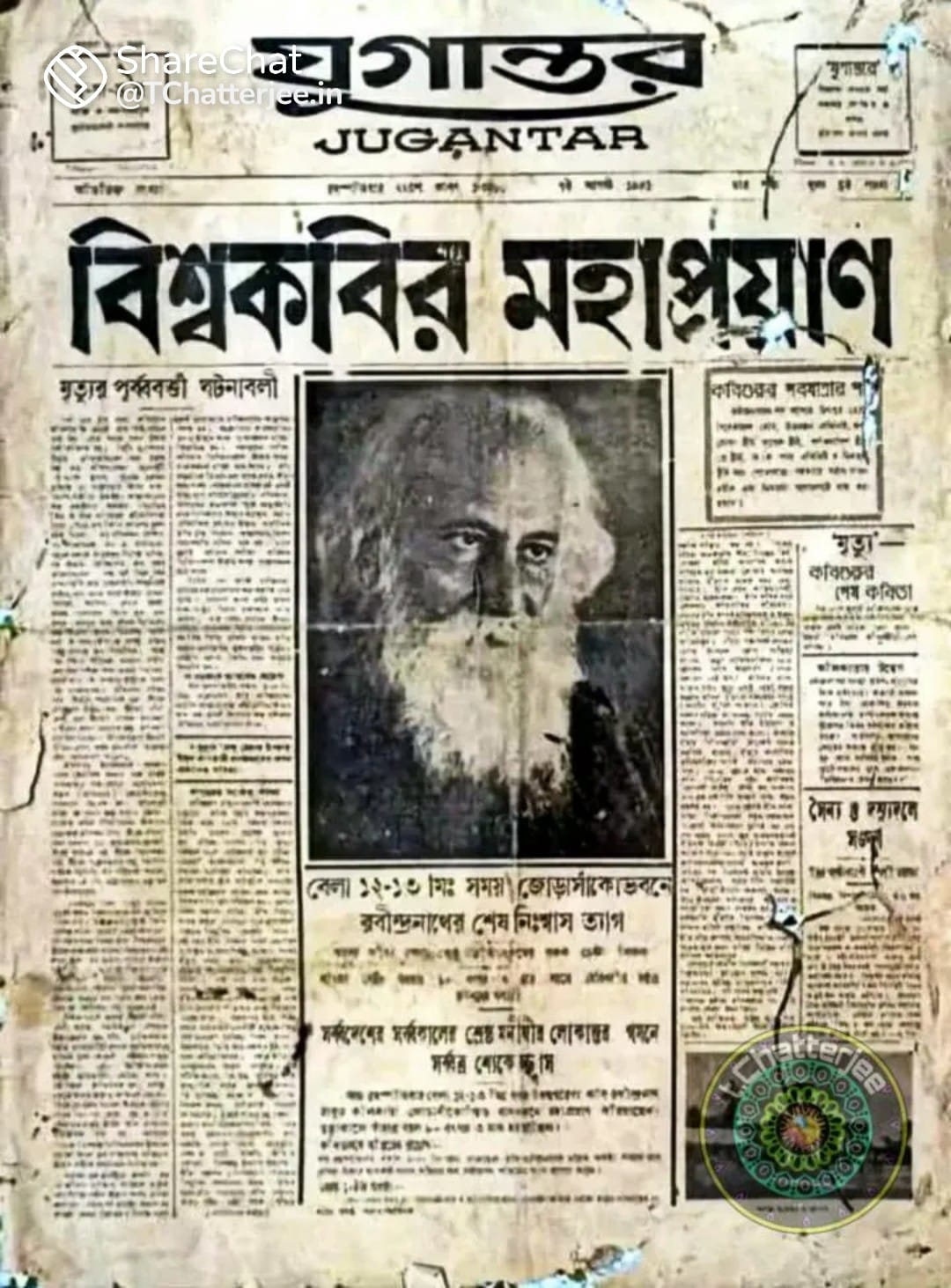Today marks the 83rd death anniversary of Rabindranath Tagore, a towering figure in Indian literature and culture. As the world pays tribute to the multifaceted genius who passed away on August 7, 1941, his legacy as a poet, painter, composer, playwright, and social reformer continues to resonate.
Rabindranath Tagore, a name synonymous with a wide spectrum of emotions for Indians, was a Nobel Laureate who reshaped Indian literature with his profound contributions.
He received the Nobel Prize for his collection "Gitanjali," an anthology of over 150 poems, a monumental work that has made a lasting impact on the literary world. Beyond his literary prowess, Tagore's contributions to music, art, and social reform have cemented his status as a cultural icon.
Tagore's patriotism and deep love for Bengal were evident in his works and life. His songs remain an integral part of Bengal's cultural fabric, echoing through the streets and homes of the state even today. His influence extends to various art forms, inspiring countless films, short stories, songs, and paintings.
On this solemn occasion, West Bengal Chief Minister Mamata Banerjee shared a heartfelt tribute on social media platform X, reflecting on Tagore's enduring impact on the state's culture and heritage.
Congress general secretary in-charge communications Jairam Ramesh said, "Today is the 83rd death anniversary of Gurudev Rabindranath Tagore. Tagore is unique and iconic in so many ways."
"He, of course, wrote the national anthem of India. One of his greatest compositions was adopted as the national anthem of Bangladesh," Ramesh said in a post on X.
Interesting facts about Rabindranath Tagore
-
Early literary prodigy: Tagore began writing poems at the tender age of eight. By the time he was 16, he had published his first book under the pseudonym 'Bhanusiṃha'.
-
Theatre enthusiast: At 20, Tagore wrote his first play, 'Valmiki Pratibha', which was staged at his family home, Jorasanko Thakur Bari. Tagore himself played the role of Valmiki.
-
Global recognition: When Tagore translated "Gitanjali," the eminent English poet W.B. Yeats penned its preface, furthering its reach and acclaim.
-
Conversations with Einstein: In 1930, Tagore visited Albert Einstein's house in Caputh, where the two luminaries engaged in profound discussions on religion and science.
-
Protest against British rule: Tagore renounced his Knighthood on May 31, 1919, in response to the Jallianwala Bagh massacre, showcasing his commitment to India's freedom struggle.
-
Nobel laureate: Tagore became the first Asian and non-European to receive the Nobel Prize in Literature, a testament to his global influence and literary excellence.
-
Educational pioneer: Tagore utilised his Nobel Prize money to establish Visva-Bharati University in Shantiniketan, a centre for learning that continues to thrive.
-
World traveller: From 1912 onwards, Tagore spent considerable time abroad, promoting his vision of universal harmony and cultural exchange.
-
National Anthem inspiration: Tagore is credited with inspiring the national anthem of Sri Lanka, 'Sri Lanka Matha'. His poem was translated into Sinhalese and adopted as the anthem.
-
Shantiniketan school: In rural West Bengal, Tagore founded an experimental school in Shantiniketan, reflecting his innovative approach to education and holistic learning.
Rabindranath Tagore's contributions extend beyond his literary works. His vision for a harmonious world, his fight for India's independence, and his efforts in education continue to inspire. As we remember the Bard of Bengal on this day, his legacy lives on, influencing generations and transcending boundaries.
As we remember Tagore on his 83rd death anniversary, his words, "Where the mind is without fear and the head is held high," continue to inspire us to strive for a better, more enlightened world.
Here is the edition of the Jugantar newspaper that reported Tagore's death:




